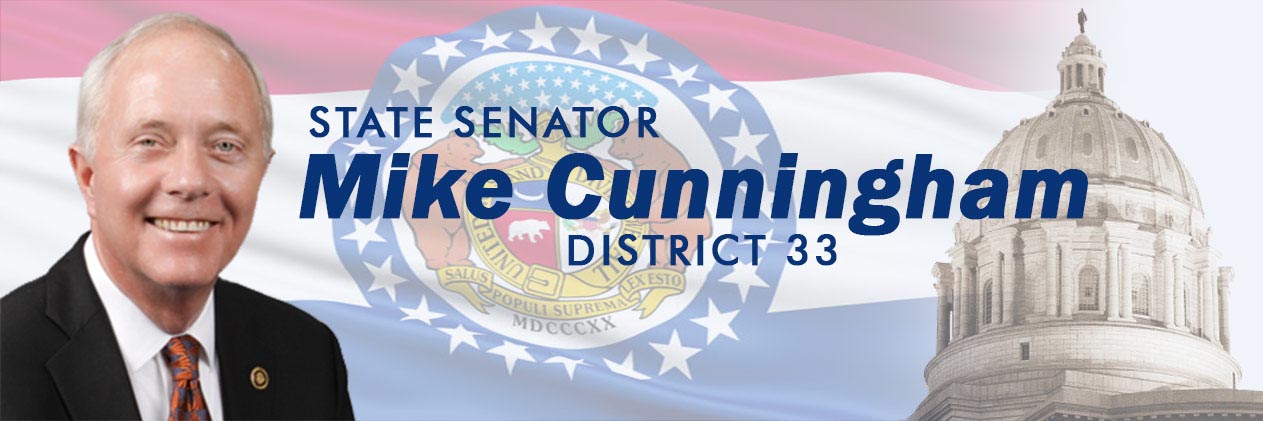
Legislative Column for July 18, 2019
Legislators kept a close eye on the governor’s office last week. According to the Constitution, the governor has 45 days after the General Assembly adjourns to accept or reject legislation. This year, the deadline was July 14, and lawmakers waited anxiously to see if their efforts were successful.
Of more than 90 bills and resolutions passed in 2019, the governor vetoed just six bills. That’s relatively few. Historically, a dozen or more bills will not make it past the governor’s desk in a typical year. In 2013, my first year in the Senate, there were 30 bills vetoed.
Although he has the authority to strike individual lines from appropriations bills, the governor chose to leave the budget entirely intact this year. Instead, he reserved his veto pen for legislation he said conflicted with other laws, and provisions he thought required more review. In each case, the governor must offer a reason for his decision.
Senate Bill 147— As originally written, SB 147 clarified confusion about whether vehicle license plates expire at the beginning or the end of the month. In its final form, the bill authorized digital drivers’ licenses, raised fees at the license office, allowed left turns onto one-way streets at red lights, created a towing service task force, partially repealed Missouri’s motorcycle helmet law and modified several other laws relating to vehicles and vehicle registration.
A lot of people were watching this legislation to see whether the governor would veto the helmet law repeal, as two previous administrations had done when presented with similar bills. Instead, the governor said SB 147 violated Missouri’s prohibition against “special laws” because it exempted St. Louis City and County from a provision relating to driver’s license suspensions. The effect is the same. You’ll still have to wear your helmet.
Senate Bill 202 – Mining minerals typically only happens in two Missouri counties, but royalties from this activity are divvied up along with proceeds from timber cut in the 29 counties with federal forest land. This bill would have directed more than $2 million in mining royalties back to the counties where the mining occurred. The governor said the bill conflicted with federal law and struck it down.
Senate Bill 282 and House Bill 447 – The governor cited the same reason for rejecting two somewhat-related laws that dealt primarily with coroners and the issuance of death certificates. Both bills sought to make the post-mortem paperwork process more efficient and reduce stress and complication for families at a time of grief. The reforms will have to be revisited at another time, however. Both bills arrived at the governor’s desk with an identical amendment to allow outdoor cremations in Missouri. The governor said “Viking funerals” needed more study.
Senate Bill 414 – This legislation created a task force to study whether Missouri should seek a waiver to the federal Affordable Care Act. Because the House of Representatives did not add an emergency clause to its bill, work could not begin until the law became effective August 28. The governor didn’t think the task force could complete its study prior to a December deadline so he vetoed the law. The study will move forward, though, as the governor created a similar panel through executive order.
House Bill 399 – An omnibus health care bill, this legislation contained a requirement for insurance companies to cover therapies for disabled Missourians, as well as provisions relating to treatment for substance abuse, a fix for surprise bills relating to out-of-network medical care and several other measures with wide support. Fortunately, these provisions were also contained in Senate Bill 514. That left the governor free to veto HB 399 over a provision that established qualifications for the position of Director of Department of Health and Senior Services. He said he thought the job requirements were too strict.
The possibility of a gubernatorial veto is well-known to legislators. Perhaps, the threat keeps lawmakers on their toes, so they only pass responsible legislation. The relatively few vetoes from the 2019 session suggests that lawmakers did a good job focusing on serious legislation this year. If there’s any truly needed measures that fell victim to the governor’s pen, then we’ll have an opportunity to revisit those when the General Assembly reconvenes for a veto session in September.
It is my great honor to represent the citizens of the 33rd Senatorial District. Although the Legislature has adjourned for 2019, I remain your senator throughout the year. If there’s anything that I can do to assist you, please feel free to contact my Capitol office at (573) 751-1882.
